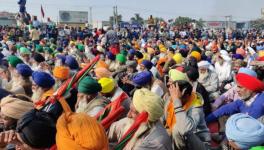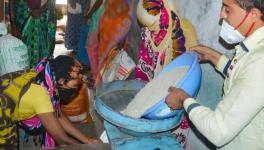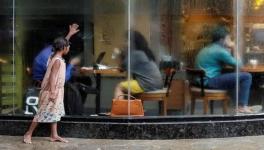COVID-19: 21-Day Lockdown Triggers Hunger Havoc for the Poor
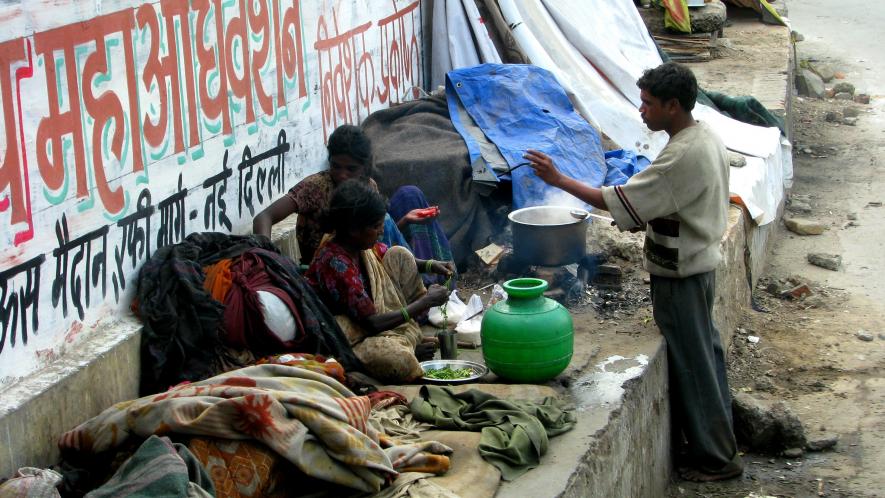
Representational image.
Ramping up India’s fight against the coronavirus pandemic, Prime Minister Narendra Modi announced a 21-day lockdown starting midnight on March 25. He argued that this was the only way to defeat the virus, and the announcement led to panic buying by those who could afford it, leading to a shortage of supplies in the market and also triggering the anxiety of over 90% of India’s workforce which is employed in the informal sector.
The worst affected are those living in bastis and are dependent on daily wages to make ends meet. The BBC reported that while daily wagers flocked to seek work on other days, many working as security guards, cleaners, rickshaw pullers, streets vendors, garbage collectors and domestic helps are left with no social security, and a looming food crisis.
Imran, a resident of Okhla said that his phone had been buzzing since last night, “as soon as the Prime Minister’s speech got over. We live in an industrial region and many of us here do not have savings to stock food supplies like others. We are getting SOS calls and there is an acute shortage of lentils and oils that is already coming to light. We are organising locally to ensure that the crisis does not consume us,” he added.
With states sealing borders, there are long queues of trucks lined along the highway carrying essential goods and commodities including medicines, milk, fruits and vegetables. With transport affected and a general sense of confusion, supplies in many areas ran short. Even online vendors like Grofers and Big Basket were left scrambling to ensure sustenance of their supply chains.
In a letter, Santosh Kumar Gangwar, Minister of State for Labour and Empowerment, brushed off the responsibility of taking care of workers who were not card holders, thereby shifting the onus of support on the states, instead of on the central government.
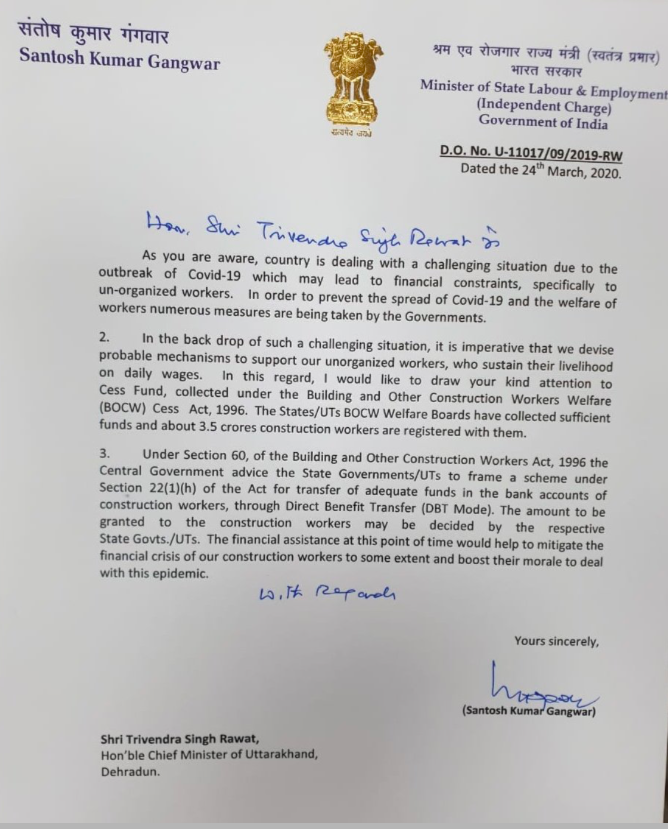
With confusions over eligibility to food supply and general panic, rights groups have appealed to the Delhi government to immediately ensure food security for all.
Speaking to NewsClick, activist Anjali Bhardwaj of the Delhi Rozi Roti Adhikaar Abhiyaan said, “People have lost their livelihoods. In Delhi, a vast majority of people are daily wagers and the lockdown is proving to be an unmitigated disaster. Though the crisis requires efforts to contain population movement the government needs to take immediate steps. At this moment the government has announced that those who are hungry can come to the night shelters but there are only 234 night shelters. Therefore, travelling to these shelters is not feasible. We are urging the government to not restrict the food distribution to card holders only as there are only approximately 73 lakh card holders and the need for food is much larger,” she added.
The group has demanded that the Delhi Government must ensure adequate access to nutritious cooked food- In addition to providing cooked food at the 234 night shelters run by the Delhi government, it has urged the government to ensure that all anganwadis and government schools in Delhi provide cooked food to anyone who requires it. This is imperative, they said, as all means of transport have been shut down and people are not allowed to move outside their immediate neighbourhoods. It will also prevent overcrowding at night shelters at meal times. During food distribution and consumption, steps must be taken to ensure that adequate physical distance between people is maintained to prevent spread of coronavirus.
During this time of severe hardship, in addition to providing 7.5 kg of free foodgrains per person every month (for priority category), the group says that there is an urgent need to provide one litre cooking oil and 1 kg pulses free of cost to each individual under the PDS. Given the importance of regular hand washing using soap to prevent spread of COVID-19, it is essential to provide soap bars at subsidized rates through PDS, they mention.
In addition, children, who have not been getting the mid-day meal which they are entitled to under the NFSA should be taken care of, they add. Also, transparency & an SOS helpline, that information regarding all food and nutrition related measures taken during this period by the Delhi government must be made available on a single website.
The economic effect of the virus needs to be understood as a deepening inequality, is increasing its spread. The New York Times noted, “at the same time, inequality itself may be acting as a multiplier on the coronavirus’s spread and deadliness. Research on influenza has found that in an epidemic, poverty and inequality can exacerbate rates of transmission and mortality for everyone. This mutually reinforcing cycle, experts warn, may be raising the toll of the virus as it widens the socioeconomic divide.”
Get the latest reports & analysis with people's perspective on Protests, movements & deep analytical videos, discussions of the current affairs in your Telegram app. Subscribe to NewsClick's Telegram channel & get Real-Time updates on stories, as they get published on our website.









